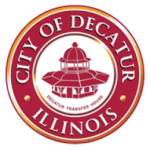Both the water fees and the sanitary sewer fees are dedicated funding sources for these two utilities. Revenues that are generated by these fees may not be used for any unrelated purposes. Drinking water consumption or sanitary sewer use has nothing to do with the storm drainage problem.
Topic: Stormwater
Can I pay less?
The proposed stormwater utility will include a credit program that will provide a means for property owners to reduce their stormwater utility fee. The credits will be applied to the ERU portion of the stormwater utility fee. All credits will be outlined in a Credit Manual that should come out about 6 months after the Phase 1 billing starts.
I’m tax-exempt… I shouldn’t pay.
The stormwater utility service charge is not a tax, therefore all entities including churches and nonprofit organizations will be required to pay the service charge. The stormwater utility is designed so that members of the community fund the program in relation to how their property generates stormwater runoff.
In 2005, the Illinois Supreme Court determined what made the stormwater utility a service charge and not a tax. (Church of Peace v. City of Rock Island, 2005)
I don’t have storm sewers in my neighborhood, I shouldn’t pay.
There are many other facilities in the City’s drainage system other than storm sewers, such as roadside ditches, waterways, and curb & gutter in the street. If you are living within the City of Decatur, you will pay the stormwater utility service charge to support the entire stormwater drainage system.
I get flooding around my house; I shouldn’t pay until the problem is fixed!
If you are living within the City of Decatur, you will pay the stormwater utility service charge. All properties benefit from the City’s stormwater management program and revenue brought in by the stormwater utility will be used to improve flooding issues around the City.
The City has 46 known flooding areas. We can’t fix all of them at one time. We plan to start work on the Top 10 and when these are done we will work on another 10 until each one is fixed. A portion of the fees collected will also go towards maintaining existing drainage systems that do work well.
I don’t have City water or sanitary service, so I don’t pay, right?
If you are living within the City of Decatur, you will pay the stormwater utility service charge. All properties benefit from the City’s stormwater management program.
What if I don’t agree with the amount of impervious surface the City thinks I have?
Impervious area won’t be a part of the fee until the second year of the utility. Each residential property will have 1 ERU assigned to the property, that’s short for “Equivalent Residential Unit”. For non-residential properties, you will receive an estimate on the amount of impervious area the City believes you have prior to being charged for the impervious area. Appeal procedures will be available at that time.
Why’s the service charge going to be based on hard surfaces?
The amount of stormwater runoff from a property is related to the amount of hard, or impervious, area that is on the property.
Ok, what’s NOT an impervious surface?
Lawns, gardens, flowerbeds, woods, retention basins. Almost every natural area is not considered an impervious surface.
I have a gravel parking area, is that impervious?
Unless gravel is specifically designed to be pervious, gravel is an impervious surface. Gravel is compacted and acts in that same way as concrete or asphalt.

